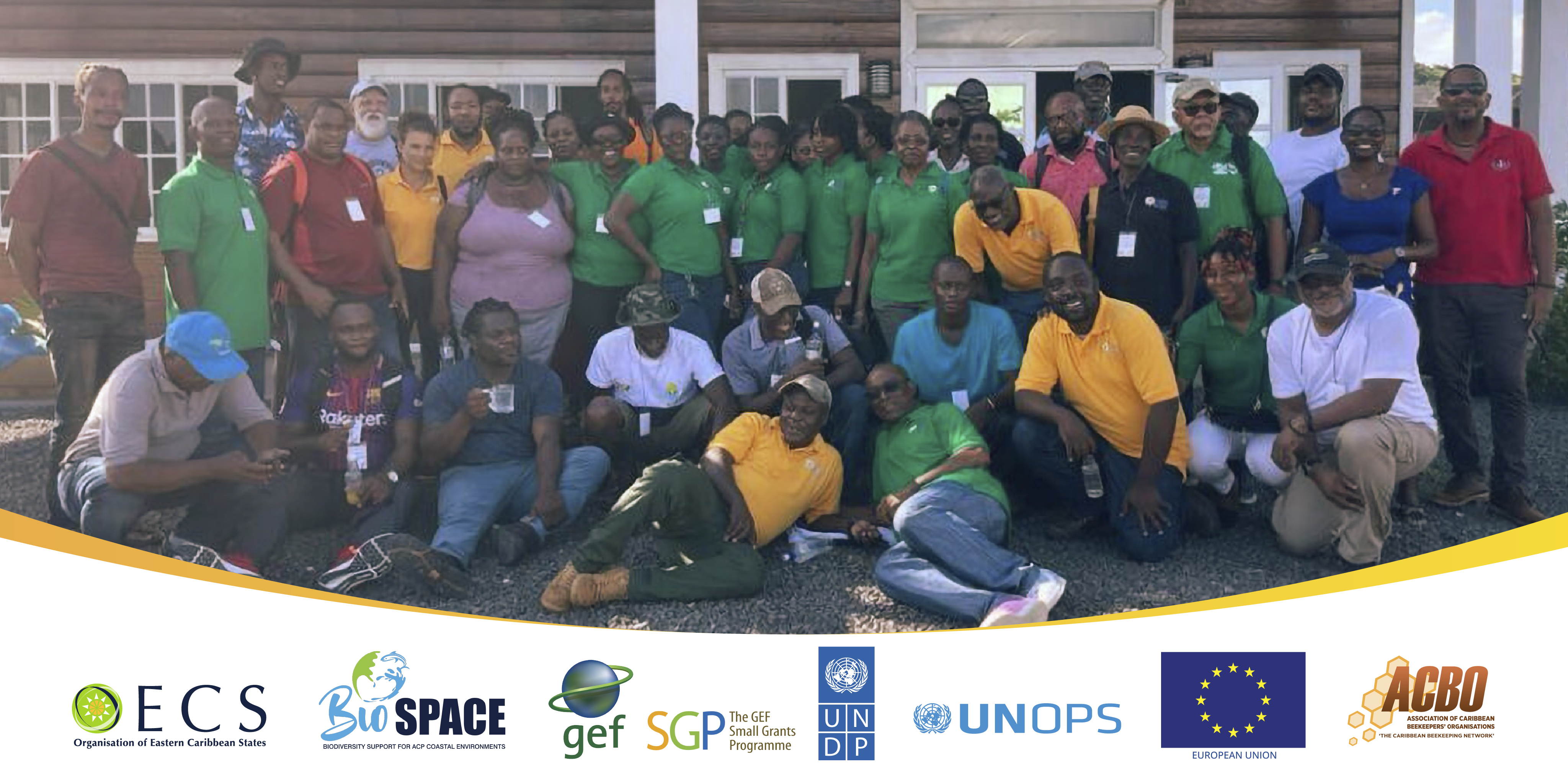Beekeepers' Call to Action: Launch of an Economic Scoping Study for the Apiculture Sector
OECS Media Release
Beekeeping is an invaluable sector in the Caribbean tradition. This bioeconomic activity has helped to build the economies of Caribbean Island states, however, over the last twenty to thirty years, beekeeping has been negatively impacted by climate change and development, which has led to reduced habitat and forage areas, and increased diseases and chemical use in the agricultural sector.
CARICOM member states recognize honey production as an important sub-sector for development in the region, however, according to the Global Environment Facility, Small Grants Programme of the United Nations Development Program (GEF SGP UNDP) Baseline Survey of Apiculture in the Caribbean (Matthias 2022), there is still a lack of a focused, structured unilateral plan to support the sector.
A unified, structured plan for the apiculture industry would contribute to sustainable economic, environmental and social development in the Caribbean. Noting the reported reduction in biodiversity worldwide, including of bee species, a structured plan for beekeeping for the Caribbean can help to realize sustainable livelihood opportunities and alternative sources of revenue for communities whilst safeguarding bee diversity.
In 2022, CARICOM attempted to address this by drafting and adopting guidelines for inter-regional honey trade, however, these were created without adequate feedback from stakeholders and as such, are not applicable to the current situation within the apiculture sector for the Caribbean.
In April 2023, the Saint Lucia office of the GEF SGP, in collaboration with the Inter-American Institute for Cooperation on Agriculture (IICA) and the Food and Agriculture Organisation (FAO) approached the OECS Commission to establish a working group to evaluate the opportunities and challenges within the apiculture sector. Technical support and cooperation was also sought from the Saint Lucia National Conservation Trust Fund (SLUNCF), the Iyanola Apiculture Collective (IAC) and the Caribbean Youth Environment Network (CYEN). Funding support has also been provided by the EU-funded BioSPACE project.
The first activity commissioned is an Economic Scoping Study of the Apiculture sector. The aim of this study is to create a clear vision and policy framework that will create an enabling environment and guide impactful investments in apiculture.
Other expected output of the initiative include:
- Production of an OECS Policy for Apiculture: which is intended to guide long-term industry development with a focus on sustainability.
- Production of a two-year work plan for Apiculture in the OECS: that guides the coordinating role of the OECS in industry development at the sub-regional level.
- Sub-regional meeting of Ministers of Agriculture in Saint Lucia, on the establishment of a framework for the sustainable development of apiculture in the OECS: to establish high-level participation and approval of the policy and workplan.
The scoping exercise is extremely important to beekeepers and we urge members of the apicultural community across the region to support the work of this study. Additionally, the results of the study will help decision makers and development partners evaluate investments in local beekeeping sectors and their contribution to human health and well-being, and national economic development.
.jpg)

